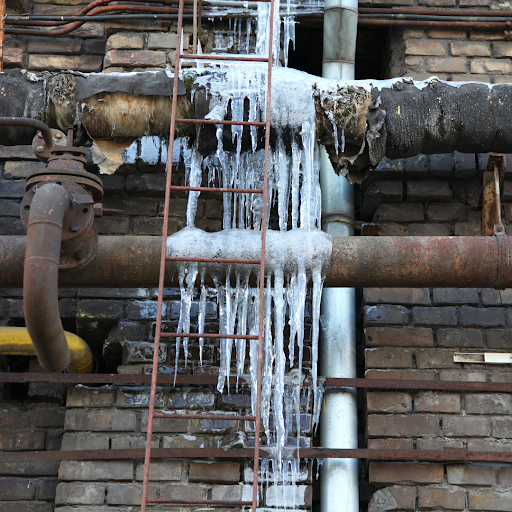Avoiding Frozen Plumbing in Cold Weather: Professional Strategies
Avoiding Frozen Plumbing in Cold Weather: Professional Strategies
Blog Article
This post which follows relating to 6 Ways to Prevent Frozen Pipes is unquestionably attention-grabbing. Check it out for yourself and figure out what you think about it.

Winter can wreak havoc on your pipes, specifically by freezing pipes. Right here's exactly how to prevent it from occurring and what to do if it does.
Intro
As temperatures decrease, the danger of icy pipes boosts, possibly leading to pricey repair services and water damages. Recognizing how to stop icy pipes is critical for home owners in cold environments.
Comprehending Icy Pipes
What creates pipelines to ice up?
Pipes ice up when revealed to temperatures below 32 ° F (0 ° C) for extended periods. As water inside the pipelines ices up, it increases, putting pressure on the pipeline wall surfaces and potentially triggering them to break.
Risks and problems
Icy pipelines can cause water system disturbances, building damages, and expensive fixings. Burst pipes can flooding homes and create extensive architectural damages.
Indications of Frozen Water Lines
Identifying frozen pipes early can stop them from breaking.
Exactly how to identify icy pipes
Try to find reduced water flow from taps, unusual odors or sounds from pipelines, and noticeable frost on revealed pipes.
Avoidance Tips
Insulating at risk pipelines
Wrap pipes in insulation sleeves or utilize heat tape to protect them from freezing temperature levels. Focus on pipelines in unheated or outside areas of the home.
Home heating strategies
Maintain interior rooms effectively warmed, especially locations with plumbing. Open cabinet doors to permit warm air to distribute around pipes under sinks.
Shielding Outdoor Plumbing
Garden hose pipes and outside faucets
Detach and drain yard tubes prior to wintertime. Mount frost-proof spigots or cover outdoor taps with shielded caps.
What to Do If Your Pipelines Freeze
Immediate activities to take
If you believe icy pipes, keep taps available to eliminate pressure as the ice melts. Use a hairdryer or towels soaked in hot water to thaw pipes gradually.
Long-Term Solutions
Architectural changes
Think about rerouting pipes far from outside walls or unheated locations. Include additional insulation to attic rooms, cellars, and crawl spaces.
Upgrading insulation
Purchase top quality insulation for pipelines, attic rooms, and walls. Correct insulation helps keep constant temperature levels and reduces the danger of icy pipes.
Final thought
Stopping icy pipelines requires positive steps and quick responses. By understanding the causes, indications, and safety nets, homeowners can shield their pipes throughout cold weather.
Helpful Tips to Prevent Frozen Pipes this Winter
UNDERSTANDING THE BASICS: WHY PIPES FREEZE AND WHY IT’S A PROBLEM
Water freezing inside pipes is common during the winter months, but understanding why pipes freeze, and the potential problems it can cause is crucial in preventing such incidents. This section will delve into the basics of why pipes freeze and the associated problems that may arise.
THE SCIENCE BEHIND FROZEN PIPES
When water reaches freezing temperatures, it undergoes a physical transformation and solidifies into ice. This expansion of water as it freezes is the primary reason pipes can burst. As the water inside the pipe freezes, it expands, creating immense pressure on the walls. If the pressure becomes too great, the pipe can crack or rupture, leading to leaks and water damage.
FACTORS THAT CONTRIBUTE TO PIPE FREEZING
Low Temperatures: Extremely cold weather, especially below freezing, increases the risk of pipes freezing. Uninsulated or Poorly Insulated Pipes: Pipes located in unheated areas, such as basements, crawl spaces, or attics, are more prone to freezing. Insufficient insulation or lack of insulation altogether exacerbates the problem. Exterior Wall Exposure: Pipes running along exterior walls are susceptible to freezing as they encounter colder temperatures outside. Lack of Heating or Temperature Regulation: Inadequate heating or inconsistent temperature control in your home can contribute to frozen pipes. PROBLEMS CAUSED BY FROZEN PIPES
- Pipe Bursting: As mentioned earlier, the expansion of water as it freezes can cause pipes to burst, resulting in significant water damage.
- Water Damage: When pipes burst, it can lead to flooding and water damage to your property, including walls, ceilings, flooring, and personal belongings.
- Structural Damage: Prolonged exposure to water from burst pipes can compromise the structural integrity of your home, leading to costly repairs.
- Mold and Mildew Growth: Excess moisture from water damage can create a favorable environment for mold and mildew growth, posing health risks to occupants.
- Disrupted Water Supply: Frozen pipes can also result in a complete or partial loss of water supply until the issue is resolved.
WHY CERTAIN PIPES ARE MORE PRONE TO FREEZING
- Location: Pipes located in unheated or poorly insulated areas, such as basements, crawl spaces, attics, or exterior walls, are at higher risk of freezing.
- Exterior Pipes: Outdoor pipes, such as those used for irrigation or exposed plumbing, are particularly vulnerable to freezing as they are directly exposed to the elements.
- Supply Lines: Pipes that carry water from the main water supply into your home, including the main water line, are critical to protect as freezing in these lines can affect your entire plumbing system.
- Underground Pipes: Pipes buried underground, such as those connected to sprinkler systems or outdoor faucets, can be susceptible to freezing if not properly insulated.
https://busybusy.com/blog/helpful-tips-to-prevent-frozen-pipes-this-winter/

I'm just very interested by 6 Ways to Prevent Frozen Pipes and I'm hoping you liked the blog posting. Enjoyed our piece? Please share it. Let others discover it. Thanks for going through it.
Book An Appointment Report this page